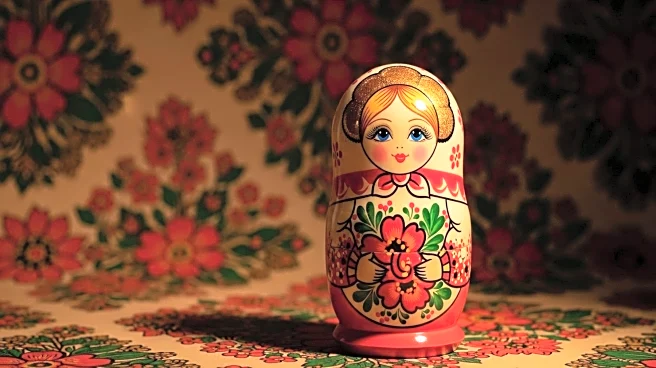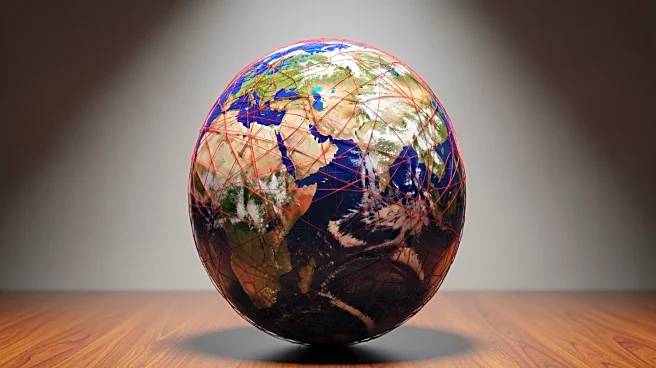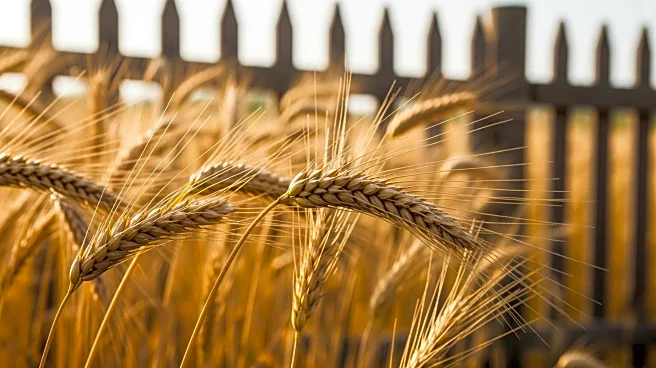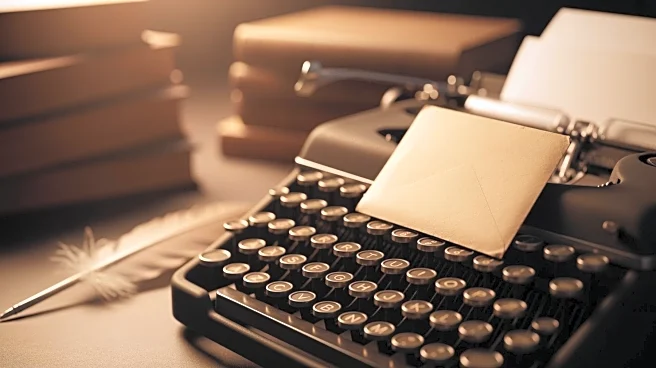What is the story about?
What's Happening?
Journalist Julia Ioffe's new book, 'Motherland,' delves into Russian history by focusing on the experiences of women, both historical figures and those from her own family. The book examines how the treatment of women reflects broader cultural and societal norms in Russia. Ioffe, who emigrated from the Soviet Union to the U.S. in 1990, uses her family's history to explore the roles of women in Soviet society, highlighting figures like Alexandra Kollontai and Nadezhda Krupskaya. The narrative intertwines personal memoir with historical analysis, offering insights into the evolution of Russian society.
Why It's Important?
Ioffe's 'Motherland' provides a unique perspective on Russian history, emphasizing the contributions and struggles of women in shaping the nation. By focusing on gender roles and the societal expectations placed on women, the book sheds light on the cultural dynamics that have influenced Russia's development. This approach not only enriches the understanding of Russian history but also highlights the universal themes of gender equality and women's rights. The book's exploration of these themes is particularly relevant in the context of ongoing global discussions about gender and power.
Beyond the Headlines
The book's exploration of women's roles in Russian history offers a deeper understanding of the cultural and societal shifts that have occurred over the past century. By highlighting the stories of women who were both ordinary and extraordinary, Ioffe challenges traditional narratives and encourages readers to consider the broader implications of gender roles in shaping history. This perspective is valuable for understanding the complexities of Russian society and the ongoing struggle for gender equality worldwide.














